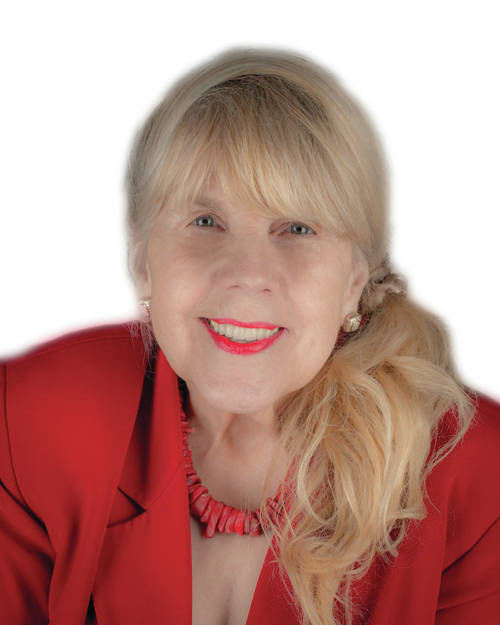
Did you make it through the holidays free of anger, illness, depression, and drunks at the table arguing about religion or politics?
Fully vaccinated against COVID and the flu, I’ve stayed isolated, reluctant to pass the crud I’ve caught from a student and not wanting to catch a second something that might compromise me or my relatives. I’ve been connected vicariously, however, to family celebrations via phone calls videos and Facebook.
At a time when organizers are encouraging us to rid ourselves of the outdated, useless stuff in our lives, I want to encourage my readers to focus on some important components by referring to a conversation I had post-Christmas with my first-cousin Laurel, a retired teacher from Georgia, who spent two nights at the Benham Schoolhouse Inn and the days with my oldest sister and her family at the old family place on the Cumberland River in Harlan County, Kentucky.
Laurel talked freely at the gathering and remembers details. A great nephew Jaymes, an auditor from Frankfort, Kentucky, talked frequently as well, and they had a superior chat fest which led to some desirable outcomes which eventually involved me.
Laurel mentioned “The Trail of the Lonesome Pine” (1908) by John Fox Jr., and Jaymes’ response was, “Why don’t I know about this novel?” Within second he had pulled up information on the book on his iPhone and was amazed that the setting was right there in the backdoor of my sister’s house. Further, he was surprised at the popularity of the work.
As Laurel told me this in our post-Christmas conversation, I was able to tell her that Fox had spent nights at her Grandfather Creech’s house, north Cumberland. A large colonial home with big pillars that exists only in my memory since the property was sold to an entrepreneur to build a drive-in movie theater, and the house was demolished.
Then our conversation moved ahead to plan a book club meeting for relatives in the summer of 2022 with a group trip across Black Mountain to see the outdoor drama The Trail of the Lonesome Pine at Big Stone Gap, Virginia (a 45-minute drive from my sister’s house). We began to delegate. My job was to call the matriarch of our really large extended family in San Antonio, Texas, Cathy, to let the Texans select the month and week since they have to travel the furthest.
To paraphrase Laurel, “We cannot know about this period in our history: we can only read and learn about an author’s interpretation of the time.”
My chat with Laurel continued as she revealed another question Jaymes had about family history, “Who is this person called ‘Auntie’ that I keep hearing about, and why would she be called that?”
I jumped right in with all sorts of information about Doris Muriel Adams, the person to whom my Ph.D. dissertation at The Ohio State University on the novels of Jack Matthews is dedicated. Auntie taught me to read and write, and I’ve never known a time when I didn’t know how to do both. I gave my copy of Winnie the Pooh which Auntie gave me when I was five years old to my oldest great-granddaughter, Parker, on her fifth birthday on Nov. 15, 2021.
Since I am older than Laurel, I agreed to send Jaymes a photo and my memories of Auntie, who held an M.L.S. from the University of Kentucky and was a refined, intelligent, hardworking, always kind, human being. I also agreed to talk to the Texas matriarch about her memories of Auntie, and I learned that Cathy has photos I don’t have as well as copies of books Auntie used to read to me. We scored again.
This led to our talking about Kentucky author Jesse Stuart, and I indicated that my original intent for my dissertation had been to explore his works until I read Lee Pennington’s, Kentucky poet laureate, master’s thesis, “The Dark Hills of Jesse Stuart: A Consideration of Symbolism and Vision in the Novels of Jesse Stuart” and knew there was nothing to add. I went on to discuss my friendship with Lee Pennington and tell Laurel that I have autographed copies of Stuart’s poems in a box in my basement.
You might be asking, What have these memories Vivian is sharing have to do with me?
A life-long educator and a later-in-life journalist I interview for my weekly columns in newspapers in Ohio, Kentucky and Tennessee, and I am amazed about how little those with whom I speak know about their families when I say, “Tell me about your father’s service in the military,” or “When your grandfather came to the U.S. to escape being killed by the Nazis, what challenges did he face?” or “You are from a family of electricians, what major jobs did they complete that brought them exceptional pride?”
My sense is that you might want to consider at your next family gathering to have less of a focus on food and chit chat. You might choose a focus on family history so that the sharing of family stories connects you more firmly with those persons who are a part of your DNA, your physical and psychological being, your sense of the world with all its complexity. And the stories don’t have to be all feel good ones. I could tell you some about my paternal grandfather, John Bowling, that would make your hair stand on end, but that’s for another day.


